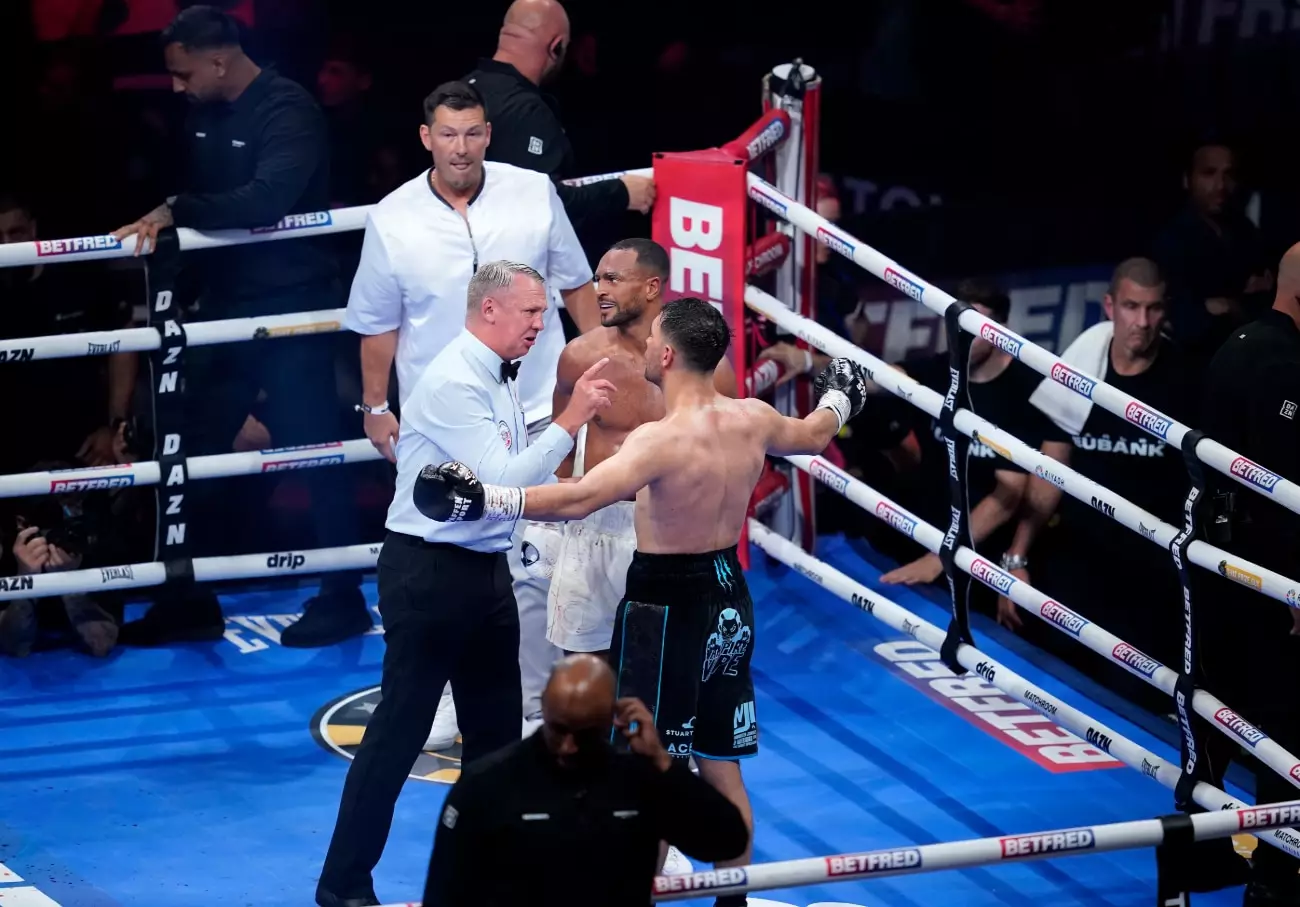In the recent bout between Jack Catterall and Harlem Eubank, spectators were met with more frustration than thrill. The fight, which should have been an opportunity to showcase boxing’s finesse and grit, devolved into a disorganized melee marred by accidental head clashes and tentative exchanges. The injury that ultimately halted the contest—a brutal cut for Catterall—underscored the chaos that enveloped the evening rather than any display of skill or strategy. Instead of a captivating contest, what unfolded was a sloppy, unpredictable affair that neither fighter nor fans will remember for its technical brilliance but rather for its disappointment.
Such fights reveal a troubling trend in modern boxing: the decline of the structured, respectful competition in favor of wild, uncontrolled encounters. When fighters are more concerned with avoiding risk than engaging authentically, the sport suffers. Last night’s fight epitomized this deterioration, with both men seemingly unsure of how to impose their will, resulting in a mismatch of intention and execution. Ultimately, the stoppage—based on Catterall’s severe cut—solidified a decision that felt more like a mercy than a triumph of the sport’s ideals.
Behind Closed Doors: The Politics and Power Plays
While fans may focus solely on the ring, behind the scenes, the fallout is equally telling. Prominent figures like Eddie Hearn quickly placed their bets on the future, emphasizing that a win is a win—a familiar refrain in boxing’s win-at-all-costs culture. Hearn’s comments reflected a pragmatic, perhaps somewhat cynical, view: one where the disappointment of a lackluster fight is secondary to strategic positioning for lucrative opportunities down the line.
His assertion that Catterall will soon fight for a major title, rather than revisit last night’s mess, underscores how the sport’s landscape often favors spectacle over substance. The decision to skip immediate rematches in favor of thrusting Catterall into a high-profile bout at welterweight reveals a preference for spectacle and marketability over the integrity of the contest. Boxing’s hierarchy—laden with rankings, promoters, and sponsor interests—continues to shape the narrative that wins and losses are mere stepping stones toward profitability, not necessarily recognition of true sporting achievement.
The Future of Catterall and Eubank: Opportunities or Dead Ends?
For Catterall, last night’s turmoil might herald a fresh start in a more competitive weight class. His victory, though unconvincing in style, cements his position as a legitimate contender in the deep and dangerous welterweight division. Prominent names like Ryan Garcia, Rolly Romero, and Devin Haney are now potential opponents who can test Catterall’s resilience and skills. But is this leap forward a testament to his talent or simply a calculated move to capitalize on a soft spot in the division’s hierarchy? That depends largely on whether Catterall can adapt from the chaos of last night’s melee to the structured discipline required at the top.
Conversely, Eubank’s struggle to assert himself left many questioning his readiness for the big stage. The promising unbeaten record he once held seems now like a distant memory, replaced by the harsh reality of a knockout to circumstances rather than a true defeat by skill. His immediate demand for a rematch reveals genuine desire, but it also highlights a need to reflect and develop rather than rush into another fight that could further tarnish his reputation. Eubank’s future hinges on how effectively he re-evaluates his approach and whether he can upgrade his mental and technical arsenal to match his ambition.
Boxing’s Unspoken Reality: Spectacle Over Skill?
What last night’s event starkly illustrates is boxing’s ongoing struggle with balancing entertainment and integrity. The sport remains a spectacle, driven by the desire for dramatic moments and pay-per-view numbers. Unfortunately, this often comes at the expense of the craft—where fighters might prioritize survival over engagement, and promoters chase headline fights rather than deserving contenders.
In many ways, boxing is at a crossroads. Will it recommit to the artistry and discipline that once defined it, or continue its slide into chaos and superficial rivalry? The answer may not lie solely with fighters but in the broader culture that continues to reward spectacle over substance. Catterall’s victory, dictated by circumstance rather than clarity of skill, is a microcosm of this dilemma. The sport’s future hinges on whether officials, promoters, and fighters recognize the importance of genuine competition over transient headlines.
Boxing’s heart still beats beneath the surface, but it requires a collective effort to reignite the discipline and respect the fighters deserve. Last night, the flaws were on full display—both in the ring and in how we choose to view it. Only time will tell if the sport will embrace the challenge of elevating it beyond its current spectacle-driven rut.

